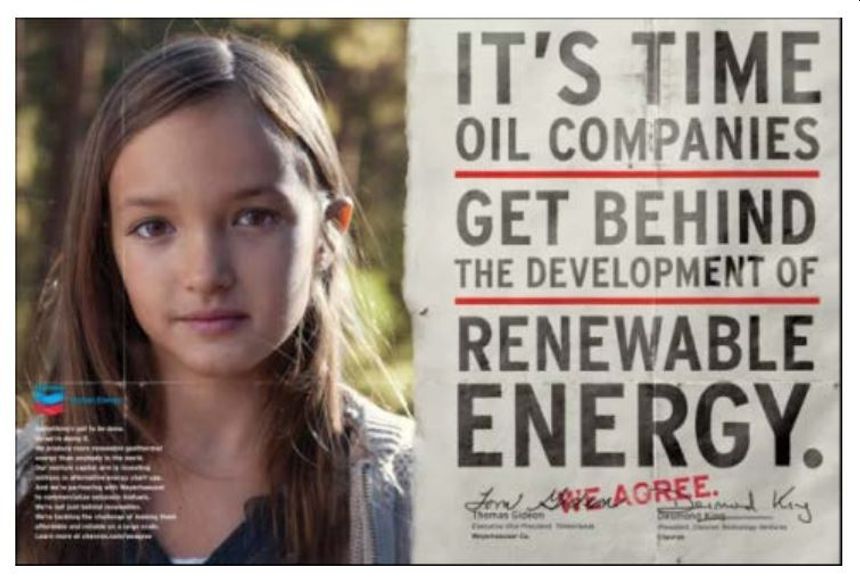Several years ago, D.C.'s Attorney General sued Exxon Mobil, BP, Chevron, and Shell, alleging that the oil companies violated the District of Columbia's consumer protection law by "systematically and intentionally" misleading consumers about the role that their products play in causing climate change. In these cases, the AG alleged that the oil companies deceived consumers about the existence of climate change and the whether fossil fuels had a role in causing it. The AG also alleged that the oil companies misled consumers about the steps they were taking to reduce their carbon footprint and to make more environmentally friendly products.
Last month, in four separate (but similar) decisions, a D.C. court denied the oil companies' motions to dismiss, allowing these cases to continue. Here are some important takeaways:
First, regulators have been having a tough time lately pushing these types of cases forward. For example, a New York court dismissed a lawsuit that the New York Attorney General brought against Pepsi which alleged that the company failed to warn consumers about the potential health and environmental risks of its single-use plastic packaging and misled consumers about its efforts to combat plastic pollution. In that case, the court said that the NYAG's allegations "strain the bounds of credulity." In another case, a New York court tossed out a lawsuit brought by the NYAG against JBS Food Company over the company's "net zero" claims, holding not only that the company hadn't made the types of advertising claims that consumers would rely on, but that the company's aspirational claims didn't promise specific results that would require a company to have proof to back them up. On the other hand, the D.C. court's decisions here suggest that (at least some) courts may be more open to these types of claims.
Second, the D.C. court indicated a willingness to consider the oil companies' advertising as a whole, over many years, when determining whether they had misled consumers – rather than considering each advertisement on a standalone basis. As the court explained in its Exxon decision, "The District alleges a singular decades-long story of deceit. Therefore, the Court is inclined to take a mosaic approach and consider the alleged misrepresentations in the aggregate, rather than separately."
Third, the court didn't buy the argument that aspirational claims are not actionable. Relying on the Earth Island case (in which a D.C. appellate court reversed a lower court ruling holding that aspirational claims are not actionable), the court held that the D.C. Attorney General had plausibly alleged that consumers may be misled by these types of future-looking claims.
Fourth, the court also wasn't persuaded that the oil companies' claims were just statements of opinion, and therefore non-actionable puffery. Responding to Chevron's argument that its statements were just opinions about matters of public concern (such as, "It's time oil companies get behind the development of renewable energy"), the court held that, "This is not the 'rare case' where the Court can say for certain that no reasonable consumers could rely on [their] alleged greenwashing statements . . . ." The court explained, A reasonable consumer could, as alleged by the District, be misled by the greenwashing statements. For example, a reasonable consumer might read that Chevron Defendants are 'behind renewables' and 'tackling the challenge of making them affordable and reliable on a large scale' . . . and conclude that [they] are putting a great deal of effort into promoting renewable energy and combatting climate change. If, as the District alleges, this is not true, a jury could find that the greenwashing statements are misleading."
Fifth, the court also rejected the argument that the oil companies' advertising couldn't be misleading to reasonable consumers because already knew that fossil fuels cause climate change. As the court explained in the Exxon decision, "a reasonable consumer can be aware that fossil fuels play a significant role in climate change and still be deceived by oil companies' clever omissions. A reasonable consumer may be aware of, or even be concerned about, climate change and believe, based on an omission, that [they] are doing net good for the environment."
And finally, the court held that the D.C. Attorney General had plausibly alleged that oil companies could be held liable for statements made by third party trade associations. As the court explained in the BP decision, "A jury could very well find that (1) BP Defendants understood the consequences of greenhouse gas emissions, and (2) funded, controlled, and participated in third-party associates that (3) misrepresented to the public that there was a lack of consensus on the causes and effects of climate change."

This alert provides general coverage of its subject area. We provide it with the understanding that Frankfurt Kurnit Klein & Selz is not engaged herein in rendering legal advice, and shall not be liable for any damages resulting from any error, inaccuracy, or omission. Our attorneys practice law only in jurisdictions in which they are properly authorized to do so. We do not seek to represent clients in other jurisdictions.

